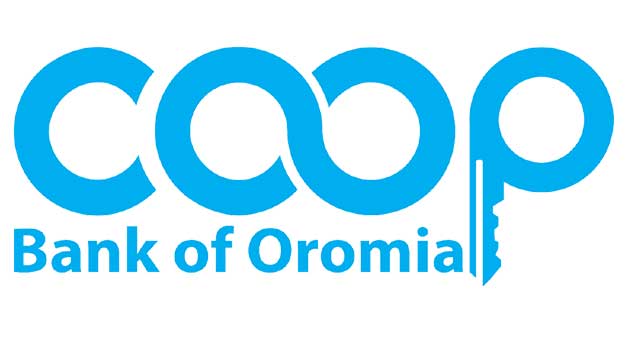
Radar | Apr 29,2023
Jun 7 , 2020
By GELILA SAMUEL ( FORTUNE STAFF WRITER
)
A new bill is in the making to enable the 125-year-old state-run postal service provider to operate as a non-financial institution and carry out e-commerce services.
Drafted by the Ethiopian Communications Authority, the Postal Service Proclamation sets the legal foundation for the Ethiopian Postal Service Enterprise to transact goods and services using the internet and facilitate the transfer of money, an expansion of its current mandate.
The bill, which has been in the making for the last year, is expected to be up for public consultation this July, according to Balcha Reba, director-general of the Ethiopian Communications Authority.
"The bill will also enable micro, small and medium-sized enterprises to sell services and products online and move their goods across the borders," Balcha said.
To establish a full-fledged e-commerce service, the Authority has conducted a study to implement national addressing and postal code standards, which would provide names and numbers for streets and buildings for their identification and location. It forwarded the study to the Ethiopian Geospatial Information Institute for scrutiny.
Upon receiving the study, the Agency has been working on collecting a survey on street names using Addis Abeba as a pilot project.
"We've developed a system that shows alternative roads or routes in the city," said Tulu Busha (PhD), director-general of the Ethiopian Geospatial Information Institute. "It's a web-based platform that shows the best means of getting from one place to another."
The routing network system has been completed for Addis Abeba, Bahir Dar, Hawassa, Adama and Jimma with the goal of reaching up to 23 different cities in the country.
In a month, the Agency plans to launch an extensive survey to identify each house, town, business place and shop in the capital and also the regional states as part of the National Addressing System plan, according to Tulu.
The bill is a part of the Integrated Postal Development Plan, which was crafted by the Ethiopian Communications Authority. The Integrated Postal Development Plan has four pillars: the development of postal sector policy, defining universal postal service, capacity building, and postal service modernisation.
Included in the capacity building lies provisions for amending the proclamation and issuing related directives like consumer rights protection alerts and dispute resolution instructions.
The Ministry of Innovation & Technology is currently working on the development of postal sector policy. Since 1908, Ethiopia has been a member of the Universal Postal Union, which is a specialised agency of the United Nations that coordinates postal policies among member nations.
Under this convention, there must be a clear distinction between the Designated National Postal Service operator and private Express Courier Services; however, the current proclamation does not clarify how the two operators vary in service.
Currently, there are 58 private express courier service providers in the country with 51 of them actively working, including United Parcel Service (UPS). The bill draws a line between private courier service providers and designated national postal service operators either through weight or the price of the parcel.
"This will be decided after the public consultation provides feedback from the stakeholders," said Balcha.
With different regulations in the making, the Enterprise is working on being prepared operationally, according to Hanna AryaSelassie, CEO of the Ethiopian Postal Service Enterprise.
"We've enabled tracking services for parcel delivery, and we're working on an integration of systems with the Customs Commission and Ethiopian Airlines for well-grounded parcel delivery insurance," she said.
The Enterprise, which now has 1,200 postal offices and over 170,000 post office boxes all across the country, is also working on re-branding itself, as well as modernising and transforming its existing services.
The postal service is going to benefit a lot by becoming an intermediary hub between e-commerce giants such as Alibaba or even local online retailers and their customers for shipping and returns, according to Noad Solomon, a fintech expert.
"It should focus on capitalising on e-commerce rather than indulging in the wholesale and retail business or SIM and voucher cards," he added.
PUBLISHED ON
Jun 07,2020 [ VOL
21 , NO
1050]

Radar | Apr 29,2023

Fortune News | Jan 01,2022

Commentaries | Jan 07,2022

Fortune News | Sep 08,2019

Radar | Feb 01,2020

Fortune News | Jun 20,2025

Fortune News | Jun 14,2020

Fortune News | Jun 01,2019


Fortune News | Jan 05,2020

Dec 22 , 2024 . By TIZITA SHEWAFERAW
Charged with transforming colossal state-owned enterprises into modern and competitiv...

Aug 18 , 2024 . By AKSAH ITALO
Although predictable Yonas Zerihun's job in the ride-hailing service is not immune to...

Jul 28 , 2024 . By TIZITA SHEWAFERAW
Unhabitual, perhaps too many, Samuel Gebreyohannes, 38, used to occasionally enjoy a couple of beers at breakfast. However, he recently swit...

Jul 13 , 2024 . By AKSAH ITALO
Investors who rely on tractors, trucks, and field vehicles for commuting, transporting commodities, and f...

Jul 5 , 2025
Six years ago, Ethiopia was the darling of international liberal commentators. A year...

Jun 28 , 2025
Meseret Damtie, the assertive auditor general, has never been shy about naming names...

Jun 21 , 2025
A well-worn adage says, “Budget is not destiny, but it is direction.” Examining t...

Jun 14 , 2025
Yet again, the Horn of Africa is bracing for trouble. A region already frayed by wars...